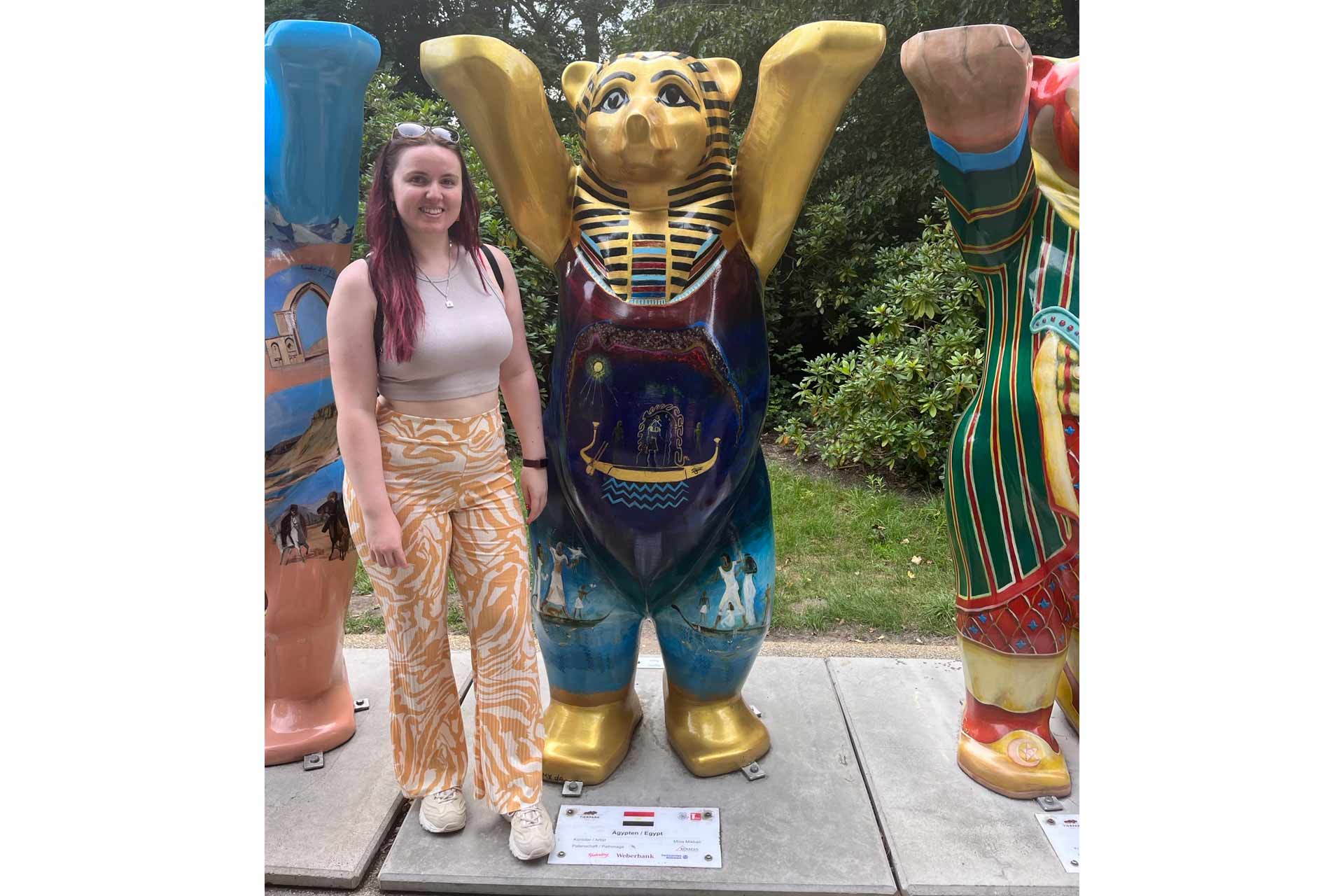
Lynsey Shale answers questions about her time studying for an MA in Egyptology, what drew her to the course, her advice to those considering postgraduate study, and her future plans.
Can you briefly describe the path you’ve taken to get to where you are today?
I was really interested in ancient Egypt as a teenager and decided in my mid-teens that I wanted to study Egyptology at University. In 2018, I started an undergraduate degree in Politics and Egyptology at the University of Liverpool. After the first semester, I realised that I enjoyed Egyptology a lot more than Politics and I made the switch to a full honours Egyptology BA course. I graduated in 2021 and then decided to undertake a MA degree in Egyptology, with a focus on the ancient Egyptian language.
What attracted you to study within the Department of Archaeology, Classics and Egyptology (ACE) at the University of Liverpool?
The range of extra opportunities that the ACE department provides attracted me to continue my MA studies here at the University of Liverpool. I was able to start volunteering at the Garstang Museum of Archaeology once a week, where I have learnt about museum practices, outreach and public engagement, and conservation. I was also able to tailor my MA to suit my focus and interest in the Egyptian language, allowing me to gain the in-depth knowledge I needed for my research specialism.
What did you particularly enjoy about your MA studies?
I enjoyed being able to tailor what I was studying to suit my interests. In each of my modules, I could choose my own topics for essays and work on material that suited my own research area. In one module, I created a plan for an exhibition on the topic of demons in ancient Egypt and in another, I was researching pharmacology in the ancient Egyptian gynaecological texts. There was also the opportunity to explore topics that were not covered in my undergraduate degree, such as legal issues in archaeology and how symbols from the ancient world can provide identities for groups of people today. It meant that my degree was individualised to me and my research interests were nurtured.
What did you do once your MA studies were complete?
Following my MA, I began my PhD in Egyptology here in the ACE Department. My PhD thesis examines how the ancient Egyptians understood gynaecological and obstetric illness, and places ancient Egyptian medical practices into the global history of women’s health. This is a continuation of my undergraduate and MA research, which looked at supernatural beings (demons & spirits of the dead) in the gynaecological and obstetric texts. Alongside my PhD, I work for the University’s Museums and Galleries Learning Team as a Learning Assistant, where I teach primary school groups about daily life in ancient Egypt, and continue to volunteer at the Garstang Museum of Archaeology.
Do you have any advice for anyone considering an MA within ACE at the University of Liverpool?
Throw yourself into life here in the Department! There are loads of different experiences available to you from volunteering, to having a go at ancient technological practices, and discovering the range of research that is happening within the department and further afield. Every subject seminar group is open to the entire department and so are all the craft and technology sessions! It’s a great way to integrate into the department and get to know people in different degree topics.